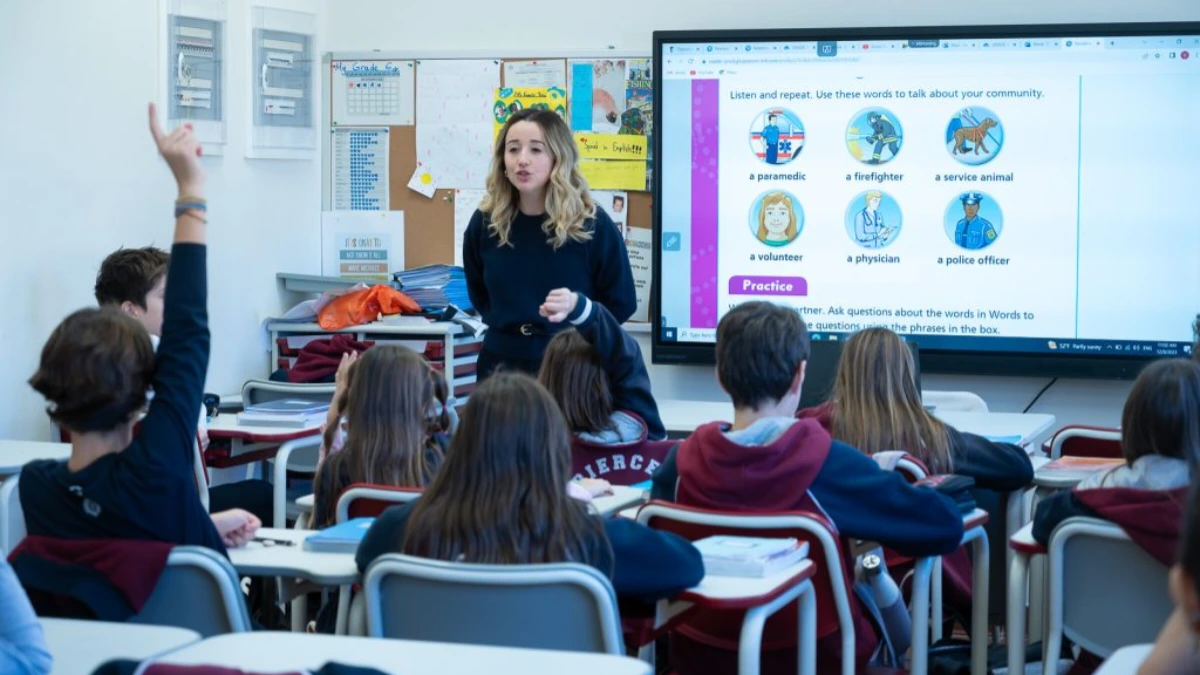ATHENS, Greece — Greece AI education efforts are accelerating as the government prepares to train secondary school teachers in using artificial intelligence tools inside classrooms.
The pilot program, developed with OpenAI, is set to begin next week in twenty schools and will introduce educators to a customized academic version of ChatGPT.
“We have to accept that AI does not exist in a parallel universe. It is here,” Education Minister Sofia Zacharaki said ahead of the launch.
The initiative positions Greece among the first countries in Europe to formally incorporate generative AI into school systems.
Under the program, educators will learn how to use ChatGPT Edu for lesson planning, research assistance and personalized learning support.
Officials said the pilot will expand nationwide in January, forming a central part of Greece AI education policy. Older secondary students will gain limited access by spring, though their usage will be tightly monitored to ensure safety and compliance.
The government’s strategy follows broader ambitions to transform Greece into a technology hub. Prime Minister Kyriakos Mitsotakis has recently promoted Athens as a regional center for innovation, with plans underway for one of Europe’s first AI factories.
Education experts said the program reflects a significant shift in how Greece approaches modernization. Dr. Eleni Papadopoulou, a digital learning researcher at the University of Macedonia, said artificial intelligence could help teachers manage increasing workloads.
“AI can streamline administrative tasks and highlight learning gaps that teachers may not catch immediately,” Papadopoulou said. “But for Greece AI education to succeed, training must focus on both the strengths and limits of the technology.”
Others warned that the rapid adoption of AI might overwhelm schools with fewer resources. Giorgos Manolarakis, a policy analyst in Heraklion, said the shift must be paired with investment in digital infrastructure.
“You cannot introduce advanced tools without ensuring every school has the capacity to support them,” he said.
Greece joins Estonia and a handful of Asian education systems that have already incorporated AI tools into national curricula.
According to the European Commission’s 2024 digital readiness report, fewer than one in five EU member states have formal AI training programs for teachers.
Officials said data from the Greek pilot will help refine broader Greece AI education frameworks before nationwide implementation.
Reactions among teachers and students remain mixed. At a recent meeting of the secondary school teachers federation, concerns were raised about workload, data privacy and long term impacts on learning styles.
“It came up in almost every discussion,” said Dimitris Aktypis, a senior member of the federation. “Some teachers welcome the support AI can provide, but many fear it may reduce human judgment in the classroom.”
Students also appeared divided. During a demonstration in Athens, seventeen year old Aristidis Tolos said the move adds pressure to an already demanding exam-focused system.
“It terrifies me,” he said. “AI doesn’t have a soul. It’s a machine.” Other students interviewed near Syntagma Square said the technology could help them study more efficiently, particularly with complex subjects.
OpenAI’s participation includes monitoring the rollout and supporting best practices for safe use. Chris Lehane, the company’s chief global affairs officer, described the partnership as “a new educational chapter” for the country.
Government officials said the next phase will evaluate teacher performance, classroom impact and student adaptation before scaling further. If successful, Greece AI education programs could serve as a model for neighboring countries exploring similar reforms.
The rollout marks a major turning point in Greece AI education as schools navigate the opportunities and concerns surrounding artificial intelligence.
While the program has drawn both enthusiasm and skepticism, officials said the pilot will shape how the country prepares its students and educators for a rapidly evolving technological landscape.
